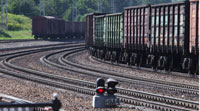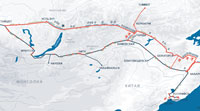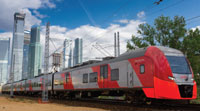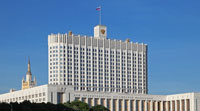Improving the quality of transportation services by freight owners
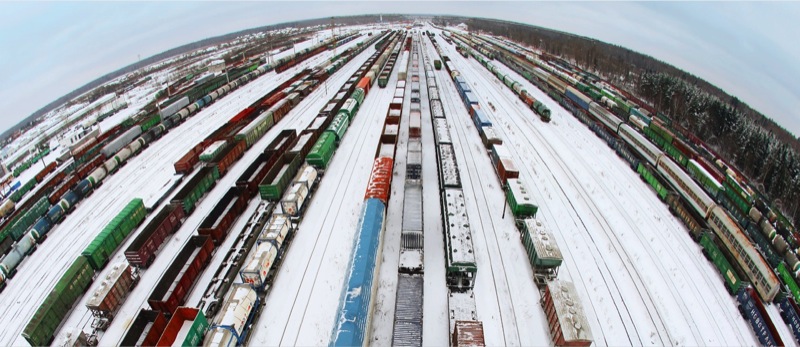
In 2014, Russian Railways carried out systematic work to improve the quality of transportation services for its customers. Features such as the availability of services and freight delivery time remain invariable criteria for quality.
Russian Railways continued offering a variety of innovative transportation services in 2014. In particular, scheduled freight shipments with an agreed departure and arrival time on contractual terms is a service that enables freight owners to optimise the production cycle — from the delivery of raw materials to the export and sale of finished products — while also providing additional income for Russian Railways. A total of 14,500 freight trains were dispatched as part of this service in 2014, an increase of 64.8% compared with 2013 (8,800 trains).
In order to further attract container freight to the Trans-Siberian Mainline, work was performed to develop the ‘Trans-Siberian Mainline in Seven Days’ project. On 13 December 2014, a container train carrying freight from the Primorye region arrived at Moscow-Tovarnaya-Paveletskaya station in less than seven days with a route speed of 1,350 km/day. A total of 492 container block trains were dispatched in 2014, an 89% increase over 2013, with an average route speed of 1,073 km/day (1,050 km/day in 2013).
In 2014, work was continued to organise the operation of refrigerator block trains with 188 such trains dispatched over the course of last year. The route speed of the refrigerator trains from Far Eastern Railways to Sverdlovsk Railways was 1,260 km/day.
Improvements have been made to the terms of guaranteed delivery time. A total of 16.7 mln shipments arrived at destination stations in 2014 with 14.5 mln, or 87.1%, of the shipments arriving by the required time, an increase of 9.6 percentage points compared with 2013.
In 2014, Russian Railways made significant progress in the introduction of paperless transportation technologies for international traffic.
Empty railcars are transported by railway with legally valid electronic waybills without preparing hard copies of documents on the following routes: Republic of Latvia — Russian Federation, Republic of Lithuania — Russian Federation, Republic of Estonia — Russian Federation, Republic of Ukraine — Russian Federation and vice versa, and Republic of Finland — Russian Federation and vice versa.
Shipments between the Republic of Belarus and the Russian Federation include both loaded freight cars as well as empty railcars based on paperless technology using electronic document workflows in both directions (at the operation domain of 18 stations of Belarusian Railway and 426 stations of Oktyabrskaya Railway).
A fundamentally essential step in the development of electronic document management is the organisation of freight shipments as of April 2014 based on paperless technology using electronic shipping documents from the Russian Federation to the Republic of Finland. In such cases, interaction in electronic format takes place not only between the carriers. Based on legally valid shipping documents automatically transmitted from the information system of Russian Railways to the information system of the Federal Customs Service, customs authorities decide in electronic format to release freight in railcars past the customs border of the Russian Federation.




